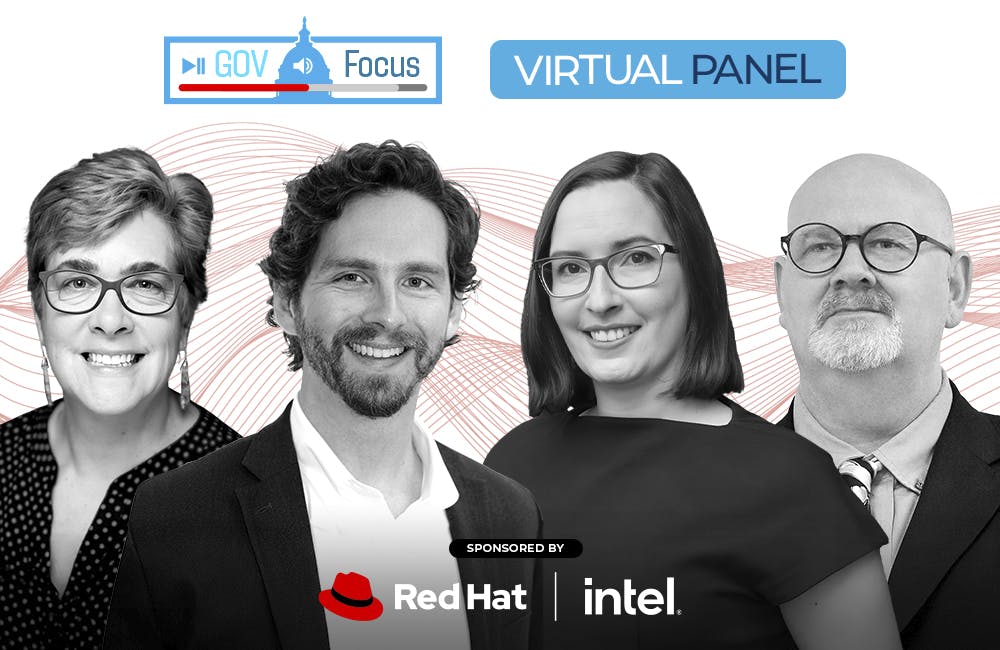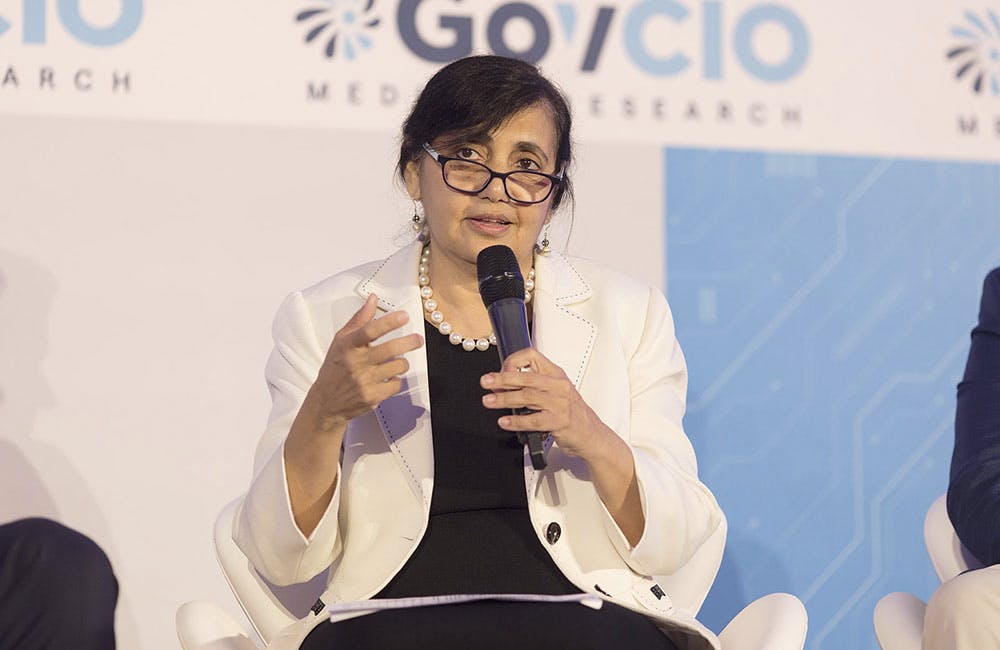Reforming Private-Public Hiring Essential for Tech Modernization
Experts in private-sector hiring see recruitment of industry executives as key for building federal human capital and preventing brain drain.

Bringing executive-level tech talent to the federal government is a recruitment area that has become increasingly crucial amidst the ongoing modernization push across federal agencies. This focus on drawing new leadership presents a special quandary for recruiters in light of both the institutional barriers as well as the challenges in sustaining human capital amidst a large swath of public-sector executives nearing retirement age.
For recruiter Foxhound Partners based outside Washington, D.C., efforts to streamline the notoriously complex private-public hiring pipeline stem from that focus.
“Agencies need to find a way to prevent brain drain,” said Manager and Co-Founder Mike Wall. Leadership “carries a lot of technical expertise.”
The scope of this demand has led to a focus on reforming the broader hiring process. Most federal agencies “have no one on the inside whose job is 100% private-sector recruiting,” Wall said. Prior methods of drawing federal tech talent are not well suited to meeting the scope of this demand — particularly the extant hiring portals used to draw new employees to federal service. “People who have to go through USAJobs are often turned off … it can be a very frustrating process.”
Executives with a long tenure in private industry often find it difficult to navigate the comparatively opaque and slow-moving federal hiring process. Wall described this as one of the major barriers to building necessary human capital and technical expertise among the upper echelons of management.
There are other practical considerations to contend with, Wall said, including the compensation differentials between private industry and the federal government. It is, therefore, crucial to target executives with a special interest in public service.
“You have to find someone who genuinely cares about the mission,” Wall said. “People want to serve because it offers a different pace.”
For defense-minded executives, this offers the additional benefit that hires “get to work on projects that actually make a difference for warfighters and veterans,” he added.
Executives with an interest in public service often use time in the federal government to build experience that allows them to subsequently establish private-sector firms that work adjacent to the federal government and further their former agency’s mission. This allows a twofold benefit that recruiters can present to potential hires. “You’re going for the mission, but also to grow personally and professionally,” Wall said.
The quick transformation of federal hiring process is a necessity, Wall said, noting that “it’s hard to recruit from inside government, and this is where private-sector hiring is crucial.”
This demand for executive-level talent is only slated to increase over the upcoming decade.
“In 2020, there will be even more agencies looking for outside help — and this is only going to increase with time,” Wall said. “The government is facing challenges in getting both executive- and junior-level talent.”
The solution appears to lie in streamlining the executive-level hiring process, Wall continued, as well as creating leadership track positions for junior staff who wish to gradually assume positions of greater responsibility within federal agencies.
Wall proposed that federal agencies should focus on programs to foster technical and leadership skills, gradually increasing both over a young professional’s tenure in public service.
Looking forward, the solution for reforming government hiring practices in the long term may lie in answering, “How do we help young professionals find a management track position and emerge as the next generation of federal leadership?” Wall concluded.
This is a carousel with manually rotating slides. Use Next and Previous buttons to navigate or jump to a slide with the slide dots
-

Pentagon's $200M AI Contracts Signal Broader Effort to Transform Talent
The Army is leveraging Silicon Valley, reservist programs and new hiring strategies to integrate critical digital skills in its ranks.
5m read -

AI Foundations Driving Government Efficiency
Federal agencies are modernizing systems, managing risk and building trust to scale responsible AI and drive government efficiency.
43m watch -

Inside DOD’s Push to Grow the Cyber Workforce Through Academia
Diba Hadi gives her first interview since becoming principal director of the DOD’s Cyber Academic Engagement Office.
15m listen -

Agencies Tackle Infrastructure Challenges to Drive AI Adoption
Federal agencies are rethinking data strategies and IT modernization to drive mission impact and operational efficiency as new presidential directives guide next steps.
5m read Partner Content -

Generative AI Demands Federal Workforce Readiness, Officials Say
NASA and DOI outline new generative AI use cases and stress that successful AI adoption depends on strong change management.
6m read -

The Next AI Wave Requires Stronger Cyber Defenses, Data Management
IT officials warn of new vulnerabilities posed by AI as agencies continue to leverage the tech to boost operational efficiency.
5m read -

Federal CIOs Push for ROI-Focused Modernization to Advance Mission Goals
CIOs focus on return on investment, data governance and application modernization to drive mission outcomes as agencies adopt new tech tools.
4m read -

Fed Efficiency Drive Includes Code-Sharing Law, Metahumans
By reusing existing code instead of rewriting it, agencies could dramatically cut costs under the soon-to-be-enacted SHARE IT Act.
5m read -

Agencies Push Data-Driven Acquisition Reforms to Boost Efficiency
New initiatives aim to increase visibility of agency spending, improve data quality and create avenues to deploy solutions across government.
5m read -

Data Transparency Essential to Government Reform, Rep. Sessions Says
Co-Chair of the Congressional DOGE Caucus Rep. Pete Sessions calls for data sharing and partnerships to reduce waste and improve efficiency.
5m read -

DOD Turns to Skills-Based Hiring to Build Next-Gen Cyber Workforce
Mark Gorak discusses DOD’s efforts to build a diverse cyber workforce, including skills-based hiring and partnerships with over 480 schools.
20m listen -

Trump Executive Order Boosts HBCUs Role in Building Federal Tech Workforce
The executive order empowers HBCUs to develop tech talent pipelines and expand access to federal workforce opportunities.
3m read
















